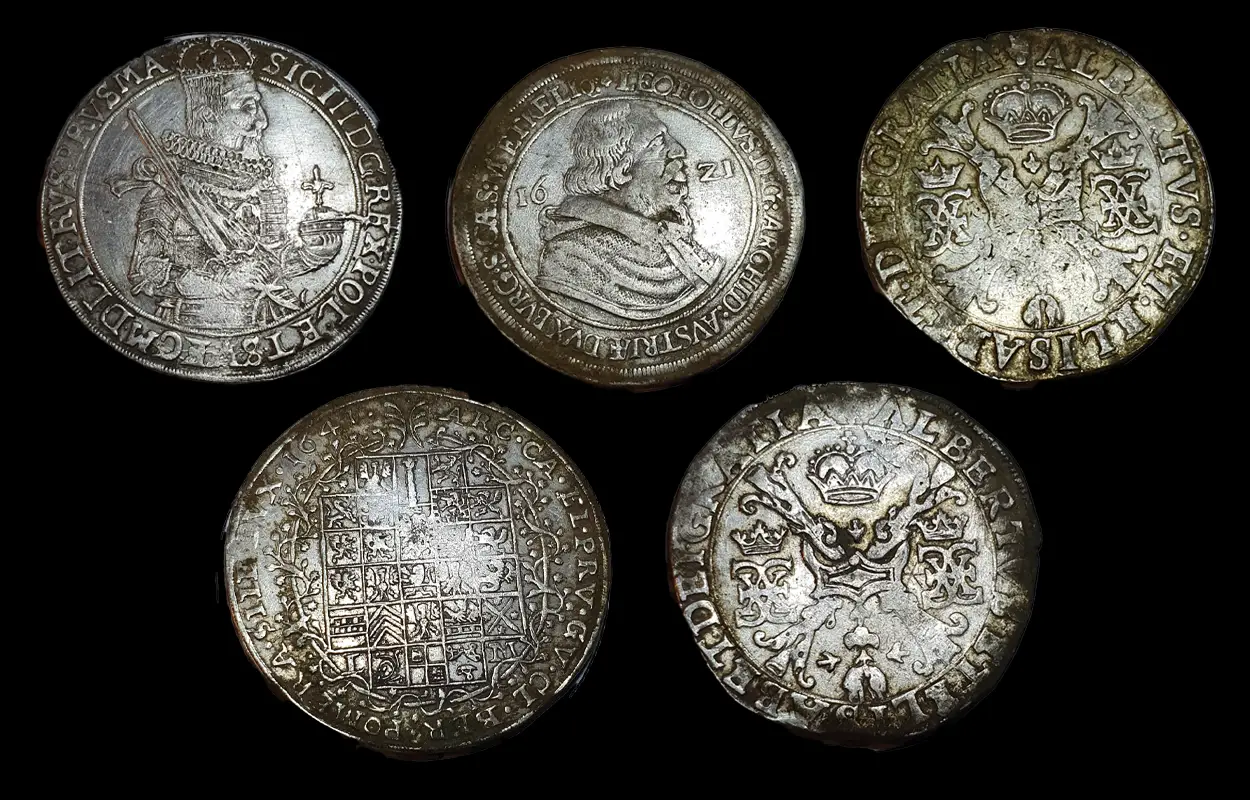Members of the Polish Association of Searchers “Hussars” have found a rare hoard of 16th and 17th-century coins near Pomiechówek in east-central Poland.
The hoard has been described as one of Poland’s most significant hoard discoveries, which experts have valued to around £95,000 (just over $124,000).
The discovery was made by Sławomir and Szymon Milewscy during a survey to locate a historical trade route dating back to Roman times.
Instead, the pair found 17 coins originating from Saxony, Brandenburg, and the Netherlands, that mainly date from the time of the Thirty Years’ War.
One of the coins is a 1630 Sigismund III Vasa thaler, minted at the Toruń Mint, for which a similar coin (in worse condition) was sold in a 2023 auction for £16,500 (just over $24,500).
The rest of the hoard consists of a 1623 John II thaler from the Duchy of Palatinate, a 1621 thaler from Tyrol, two 1621 patagons depicting Albert and Elizabeth from the Spanish Netherlands, a 1641 thaler of Frederick William I from Brandenburg-Prussia, thalers of Johann Georg I from Saxony, John II from the Duchy of Palatinate, Leopold V, Frederick I of Austria, Rudolf II from Austria, and five patagons from Philip IV of the Spanish Netherlands.
Piotr Duda, an archaeologist from Triglav told Polskie Radio “This is probably one of the largest finds of its kind ever discovered in Poland, and certainly in Mazovia. The historical significance is beyond measure, and its estimated material value is half a million złotys.”
How the hoard came to be buried near Pomiechówek is speculated, however, one proposal is that the coins were deposited for security during a period of unrest. This is supported with Pomiechówek being located near the 1655 battle between Swedish forces and the Polish Crown at Nowy Dwór Mazowiecki.
Header Image Credit : Polish Association of Searchers “Hussars”
Sources : PAP





